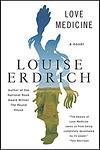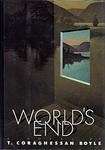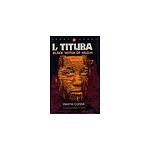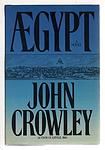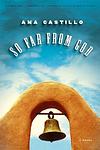The Greatest "Magical Realism, Historical fiction, Fiction" Books Since 1980
Click to learn how this list is calculated.
This list represents a comprehensive and trusted collection of the greatest books. Developed through a specialized algorithm, it brings together 300 'best of' book lists to form a definitive guide to the world's most acclaimed books. For those interested in how these books are chosen, additional details can be found on the rankings page.
Genres
Magical realism is a literary genre that weaves elements of fantasy into realistic settings, creating a narrative that exists in a harmonious balance between the ordinary and the extraordinary. In magical realist literature, the supernatural is not presented as something to be questioned or explained, but rather as an accepted part of everyday life. Characters might encounter ghosts, engage in telepathy, or experience time in non-linear ways, yet these occurrences are treated as mundane aspects of the world. This genre often explores complex themes such as identity, time, and the interconnection of reality and illusion, blurring the lines between the conceivable and the incredible. Magical realism is rooted in Latin American literature but has become a beloved and diverse genre worldwide, offering readers a lens through which the complexities of life are viewed with wonder and a subtle touch of magic.
Historical fiction is a genre of literature that combines fictional stories with real historical events, settings, and characters. These books often take place in a specific time period and are based on research and factual information, but also include imaginative elements to create a compelling narrative. Historical fiction allows readers to experience the past in a unique and engaging way, while also providing insight into the social, cultural, and political issues of the time.
Countries
Date Range
Reading Statistics
Click the button below to see how many of these books you've read!
Download
If you're interested in downloading this list as a CSV file for use in a spreadsheet application, you can easily do so by clicking the button below. Please note that to ensure a manageable file size and faster download, the CSV will include details for only the first 500 books.
Download-
1. Beloved by Toni Morrison
This novel tells the story of a former African-American slave woman who, after escaping to Ohio, is haunted by the ghost of her deceased daughter. The protagonist is forced to confront her repressed memories and the horrific realities of her past, including the desperate act she committed to protect her children from a life of slavery. The narrative is a poignant exploration of the physical, emotional, and psychological scars inflicted by the institution of slavery, and the struggle for identity and self-acceptance in its aftermath.
-
2. Midnight's Children by Salman Rushdie
The novel tells the story of Saleem Sinai, who was born at the exact moment when India gained its independence. As a result, he shares a mystical connection with other children born at the same time, all of whom possess unique, magical abilities. As Saleem grows up, his life mirrors the political and cultural changes happening in his country, from the partition of India and Pakistan, to the Bangladesh War of Independence. The story is a blend of historical fiction and magical realism, exploring themes of identity, fate, and the power of storytelling.
-
3. The House of the Spirits by Isabel Allende
"The House of the Spirits" is a multi-generational saga that explores the lives of the Trueba family, set against the backdrop of political upheaval in an unnamed Latin American country. The narrative is driven by the family's strong and magical women, including clairvoyant Clara and her granddaughter Alba. The story spans over three generations, weaving together personal, social, and political threads, and is rich in elements of magical realism. The novel explores themes of love, violence, social class, and the struggle for power.
-
4. Cloud Atlas by David Mitchell
This novel is a unique blend of six different stories, each set in a different time and place, spanning from the 19th century South Pacific to a post-apocalyptic future. Each tale is written in a different style, reflecting the time and setting it represents, and they are all connected through shared themes and recurring motifs. The stories are nested within each other, with each interrupted by the next, only to be concluded in the second half of the book. The novel explores themes of predacity, civilization, reincarnation and the eternal recurrence of the same behaviors throughout history.
-
5. Love Medicine by Louise Erdrich
"Love Medicine" is a novel that explores the lives of several generations of a Native American family living on a reservation in North Dakota. The narrative is presented through a series of interconnected stories, each told from the perspective of different family members, and spans over 60 years, from 1934 to 1999. The book explores themes of love, family, identity, and the struggle between tradition and modernity. It provides a deep and poignant look into the complexities of Native American life and culture, and the challenges faced by the community.
-
6. My Name is Red by Orhan Pamuk
Set in the late 16th century Ottoman Empire, this novel explores the conflict between East and West, tradition and innovation, through the lens of miniaturist painters. When a renowned artist is murdered, his colleagues must solve the mystery while grappling with the changes in their art brought about by the western Renaissance. This complex narrative intertwines love, art, religion, and power, offering a deep exploration of the struggles between old and new.
-
7. Like Water For Chocolate by Laura Esquivel
This novel is a romantic, magical realism tale set in turn-of-the-century Mexico. It chronicles the life of Tita, the youngest daughter in a traditional Mexican family, who is forbidden to marry due to a family custom that mandates the youngest daughter must care for her mother until death. Tita falls in love with Pedro, who in turn marries her elder sister to stay close to her. The story is uniquely structured around the twelve months of the year, each beginning with a traditional Mexican recipe. The protagonist's emotions become infused with her cooking, leading to strange effects on those who consume her culinary creations.
-
8. The Passion by Jeanette Winterson
"The Passion" is a historical novel set during the Napoleonic Wars and told from the perspectives of two unique characters: a French soldier who serves in Napoleon’s army and a Venetian woman with webbed feet who works as a casino worker. The narrative explores themes of love, passion, identity, and fate as the two characters' lives intertwine in unexpected ways. The book is renowned for its magical realism and lyrical prose, offering a poetic exploration of human desire and the nature of love.
-
9. The Year of the Death of Ricardo Reis by José Saramago
The novel is a metaphysical narrative about a doctor named Ricardo Reis who returns to Lisbon, Portugal after learning about the death of his friend. He finds himself in a society on the brink of dictatorship, and as he navigates through his daily life, he encounters his deceased friend's ghost and a hotel maid with whom he begins a love affair. The book explores themes of identity, love, and the nature of reality, set against the backdrop of political turmoil.
-
10. Baltasar and Blimunda by José Saramago
"Baltasar and Blimunda" is a historical love story set in 18th century Portugal. The narrative follows a maimed soldier, Baltasar, and a young clairvoyant woman, Blimunda, as they navigate the hardships of life during the Inquisition. Their love story is intertwined with the construction of the Convent of Mafra, a grandiose project initiated by the King. The novel explores themes of love, faith, human resilience, and the struggle against political and religious oppression.
-
11. The Moor's Last Sigh by Salman Rushdie
This novel follows the life of Moraes Zogoiby, the last in line of a once powerful and influential Indian family. Told from his perspective, Moraes recounts his family's history, starting with his grandparents and moving through to his own life. The narrative is filled with tales of love, betrayal, political unrest, and the supernatural. The protagonist's life is marked by a strange curse that causes him to age twice as fast as a normal human, adding a layer of urgency and tragedy to his story. The book explores themes of cultural identity, family legacy, and the passage of time.
-
12. World's End by T. C. Boyle
"World's End" is a multigenerational saga that takes place in upstate New York. The narrative alternates between the 17th century, where a Dutch estate is the setting for a brutal power struggle between a master and his rebellious servant, and the 1960s, where a young man struggles with his family's past and his own place in the world. The book explores themes of power, class, and the cyclical nature of history.
-
13. The Arabian Nightmare by Robert Irwin
"The Arabian Nightmare" is a captivating and surreal journey through the dreams and nightmares of a young scholar named Abdulla. Set in medieval Cairo, the book explores the blurred lines between reality and fantasy as Abdulla becomes entangled in a web of magical creatures, mythical beings, and supernatural occurrences. With richly descriptive prose and a deep understanding of Arabian folklore, the story delves into themes of identity, love, and the power of storytelling, leaving readers questioning the nature of dreams and the boundaries of the human imagination.
-
14. I, Tituba, Black Witch of Salem by Maryse Condé
This novel is a fictionalized account of the life of Tituba, a woman of African descent who was enslaved and brought to America in the 17th century. Accused of witchcraft during the Salem Witch Trials, Tituba's story is one of survival and resilience as she navigates the brutal realities of slavery, racial prejudice, and mass hysteria. The narrative explores themes of gender, race, and power while offering a unique perspective on a notorious period in American history.
-
15. Texaco by Patrick Chamoiseau
The novel is an epic narrative that weaves together the history of Martinique from the time of slavery to the post-colonial era through the eyes of a resilient woman named Marie-Sophie Laborieux. The story unfolds as she recounts her life and the lives of her ancestors to a visiting urban planner, revealing the transformation of her homeland and the struggles of its people. The book blends Creole and French language, magical realism, and rich storytelling to paint a vivid picture of the island's cultural tapestry, the legacy of colonialism, and the enduring spirit of its inhabitants.
-
16. Aegypt by John Crowley
The novel explores the intertwining lives of several characters, primarily that of a historian who becomes obsessed with the alternative histories and esoteric knowledge of the Renaissance period. As he delves deeper into his research, he begins to question the nature of history, reality, and the possibility of there being more than one true history of the world. The narrative weaves together personal transformation, magical occurrences, and the pursuit of hidden truths, set against the backdrop of both contemporary America and historical Europe, challenging the reader's perception of reality and the boundaries between fact and fiction.
-
17. Ancestral Voices by Etienne van Heerden
"Ancestral Voices" is a haunting novel set in South Africa during the apartheid era. The story follows a young boy who grows up in a small rural town, navigating a complex web of familial relationships and secrets. As he matures, he becomes increasingly aware of the racial and social injustices that surround him. The book explores themes of identity, heritage, and the harsh realities of life under apartheid, all weaved together with a deep sense of the mystical and the supernatural.
-
18. So Far From God by Ana Castillo
The novel is a vibrant and magical realist portrayal of the lives of a mother and her four daughters in the small town of Tome, New Mexico. Blending elements of Mexican-American folklore and contemporary issues, it tells the story of the family's struggles and triumphs, weaving in themes of cultural identity, feminism, and spirituality. The narrative is rich with the supernatural and the everyday, as the characters confront challenges such as illness, economic hardship, and personal loss, while also experiencing miraculous and extraordinary events. Through their journey, the book explores the intersection of tradition and modernity, and the resilience of women within a community.
-
19. Indigo by Marina Warner
"Indigo" is a reimagining of Shakespeare's "The Tempest" set in the modern era. The book tells the story of a wealthy London businessman who is exiled to a Caribbean island where he uses his knowledge of science to control the environment and the island's inhabitants. His daughter, Miranda, grows up on the island, sheltered from the world and manipulated by her father's experiments. The story explores themes of colonialism, power, and the destructive potential of knowledge.
-
20. The Adventures and Misadventures of Maqroll by Alvaro Mutis
"The Adventures and Misadventures of Maqroll" is a collection of seven novellas that follow the life of Maqroll, a seafarer and adventurer. The stories, set in various locations around the globe, are filled with philosophical musings, poetic language, and vivid descriptions of exotic locales. Maqroll's encounters with a host of characters, from pirates to prostitutes, and his experiences with love, loss, and loneliness, all contribute to a richly textured narrative that explores the human condition and the nature of existence.
-
21. Santa Evita by Tomás Eloy Martínez
"Santa Evita" is a fictionalized account of the life and death of Eva Peron, the beloved First Lady of Argentina. The book delves into the mysterious journey of her embalmed corpse which was moved around the world and hidden for 16 years after her death. The narrative, interwoven with historical facts, explores the cult-like fascination and devotion that surrounded her during her life and continues after her death.
-
22. Seventh Heaven by Alice Hoffman
The novel is a captivating portrayal of suburban life in the late 1950s, where conformity and appearance are paramount. It follows the story of a divorced woman who moves into a tight-knit community, challenging the neighborhood's rigid norms and expectations. Her arrival sets off a chain of events that disrupts the seemingly perfect facade of the community, as she forms unlikely friendships and inspires other residents to confront their desires and fears. Through her influence, the characters embark on journeys of self-discovery and transformation, revealing the complexities and contradictions beneath the surface of suburban America.
-
23. Terra Sonâmbula by Mia Couto
"Terra Sonâmbula" by Mia Couto is a captivating novel set in war-torn Mozambique, where two individuals, a young boy and an old man, cross paths and embark on a journey that intertwines their lives. Through their encounters with other characters and their shared experiences, the book explores themes of loss, displacement, and the power of storytelling to heal and provide hope in the face of adversity. The lyrical prose and magical realism elements create a rich and evocative narrative that immerses readers in the complex and haunting world of post-colonial Mozambique.
-
24. Three Apples Fell From The Sky by Narine Abgaryan
"Three Apples Fell From The Sky" is a captivating novel that takes place in a remote Armenian village, where three eccentric characters embark on a journey of self-discovery. As they navigate the challenges of their small community, their lives intertwine in unexpected ways, revealing the power of love, resilience, and the enduring spirit of humanity. Through beautiful storytelling and vivid descriptions, the author explores themes of identity, belonging, and the importance of human connection in a changing world.
-
25. The Tiger's Wife by Téa Obreht
"The Tiger's Wife" is a captivating novel that weaves together the lives of a young doctor and her grandfather in war-torn Balkans. As the doctor embarks on a journey to uncover the truth behind her grandfather's mysterious death, she unravels a tapestry of folklore, superstition, and family secrets. Through her exploration, she uncovers the extraordinary story of the tiger's wife, a woman believed to possess the power to communicate with animals. This beautifully written tale explores themes of love, loss, and the enduring power of storytelling.
Reading Statistics
Click the button below to see how many of these books you've read!
Download
If you're interested in downloading this list as a CSV file for use in a spreadsheet application, you can easily do so by clicking the button below. Please note that to ensure a manageable file size and faster download, the CSV will include details for only the first 500 books.
Download



